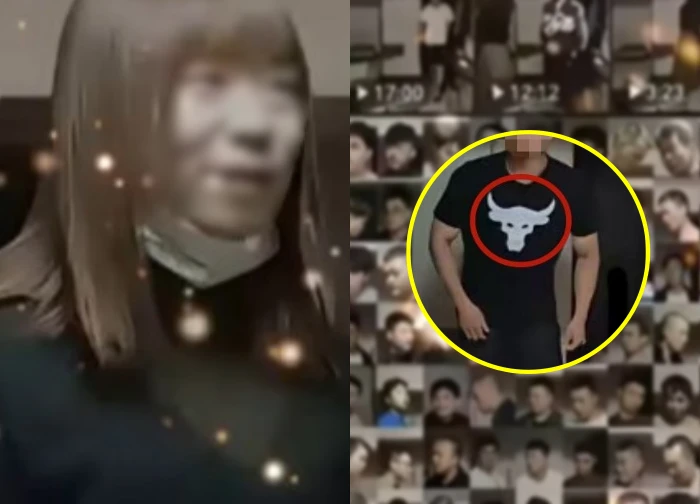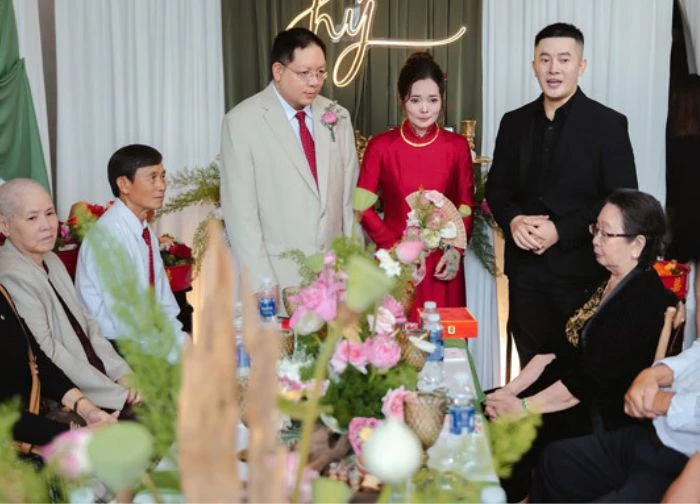"Hong Ty" love scam case: 1 victim begs for forgiveness, leaves Nanjing in a hurry, shocking reason

3 | 0 Discuss | Share
Recently, the case of "Hong Ty" (or Ms. Hong) with the suspicion of a 38-year-old Chinese man pretending to be a woman to deceive people and film private clips has caused a stir in the online community because of the unbelievable details.
Although the authorities are investigating the violations, the incident quickly became entertainment material, an online game, attracting thousands of views, comments, and shares with a joking and entertaining attitude.
According to the Framing Theory proposed by Canadian-American sociologist Erving Goffman in 1974, the media not only reflects events but also shapes and frames the way the public understands, feels and reacts to those events.
In the case of the "Hong Ty" incident, many media products on social networks have framed this event in an entertaining way, instead of framing it from a legal, ethical, cultural, psychological, and social perspective.
This is demonstrated by the appearance in just a few days of countless memes, photos, and collages of self-portraits in "Hong Ty's room", videos of people dressing up as "Hong Ty", creating clips in "Hong Ty's room", and reenacting situations of pretending to be a girl to deceive people online.
Social media platforms encourage attention-grabbing, highly interactive content, which makes these “trendy†products spread even faster. Viewers easily respond to this trend because of its humor, crowd effect, satisfying the need to keep up with trends, and the purpose of attracting views.
This uncontrolled joking also shows the reality that internet users are following, helping to spread, and even participating in reproducing harmful things as part of digital life.
Insiders speak up to ask for forgiveness
As the incident became more and more popular on social media, revealing close-up images of many men involved in the 'flower buying' incident with 'Hong Ty', they spoke up to stop spreading the video.
Accordingly, fitness trainer Tri Duong said he was forced to go public because he could no longer bear the harassing messages, questioning and criticism from the online community. He reported to the police, went to the hospital to be tested for gonorrhea and announced that he would leave Nanjing to avoid public pressure.
The biggest concern now is that videos that have not been processed for facial recognition are still being shared. Many of the men in the videos fear being identified, which could affect their reputation, careers, and personal lives.
Laughing in the wrong place
Approaching the "Hong Ty" incident in a vulgar and entertaining way online can make public opinion forget the nature of the problem. Aspects of emotional deception, secret filming, clip distribution, identity disclosure, privacy invasion, etc. in the "Hong Ty" story become obscure and are rarely mentioned.
Viewers gradually followed the crowd's mentality and saw this as a story to laugh about, rather than a serious, complicated incident that needed to be analyzed and handled properly.
This humorous perspective exploded on social media, making it difficult for authorities to control real and fake news, criticize society, and guide public opinion. Notably, this environment has produced trash products as many content creators take advantage of the incident to attract views and interactions regardless.
With the mission of shaping the correct information framework, mainstream press agencies need to quickly build objective and in-depth lenses that fully reflect legal and cultural analysis of serious events in social life.
Timely criticize and respond to spam, deviant content that negatively affects viewers' perception and behavior. It is necessary to exploit the opinions of experts and researchers in media law, sociology, and behavioral psychology. From there, re-establish a correct understanding framework and reorient public tastes in the digital society.
Managers need to strengthen digital media education in schools and families as a long-term solution to build critical thinking and responsible behavior online.
Social media platforms must demonstrate their responsibility and ethical commitment by increasing the use of AI to detect and remove harmful products and improve algorithms to promote healthy and educational products.
On the public side, we need to be proactive in distinguishing between valuable information and false information. If we continue to be lenient with harmful content, at some point we ourselves may become victims of a distorted and mocked story.
"Hong Ty" love fraud case: 1 lawyer suspected of being involved, posted a shocking correction  Snow17:09:24 17/07/2025Amidst public confusion and the gradual revelation of victims, famous Malaysian lawyer Kong Jau Sang had to speak up to clarify and deny rumors that he was one of Hong Ty's prey.
Snow17:09:24 17/07/2025Amidst public confusion and the gradual revelation of victims, famous Malaysian lawyer Kong Jau Sang had to speak up to clarify and deny rumors that he was one of Hong Ty's prey.

3 | 0 Discuss | Share

3 | 0 Discuss | Share

0 | 0 Discuss | Share

5 | 0 Discuss | Share

3 | 0 Discuss | Share

4 | 0 Discuss | Share

2 | 0 Discuss | Share

4 | 0 Discuss | Share

2 | 0 Discuss | Share

2 | 0 Discuss | Share

2 | 0 Discuss | Share

4 | 0 Discuss | Share










4 | 0 Discuss | Report